Ugandan women agitate for fair share of farm output
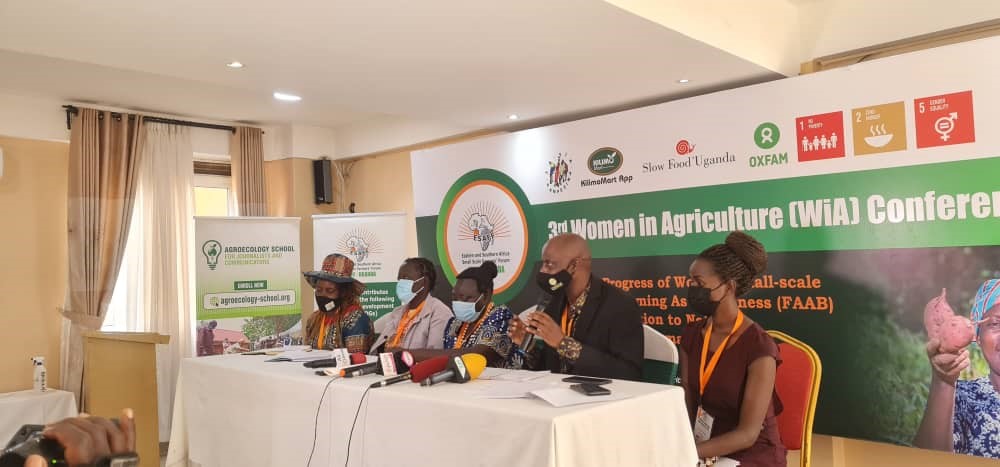
Lack of ownership over land is a binding constraint that stifles the potential of rural women’s participation in Agriculture in Uganda, delegates attending the third edition of the Women in Agriculture Conference heard.
The resulting uncertainty around land tenure also forces women to invest in seasonal crops which stifles their earnings from agriculture.
Themed “Tracking Progress of Women Small Scale Farmers in Farming as A Business (FAAB) and Its Implication to National Economic Transformation,” the 3rd Annual Women in Agriculture (WiA) Conference that took place on November25, brought together different stakeholders to seek solutions to the challenges that women in agriculture face.
According to Vicky Lukwiya, a farmer leader in Gulu district in northern Uganda, customary land tenure systems and the control of access to land by men, has denied women ownership over land and turned them into virtual labourers, with minimal access to services that would help them increase output.
Baliraine Hakim, the General Secretary of the East and Southern Africa Small Scale Farmers Forum ESAFF-Uganda and a farmer in Mayuge district, says the earnings of women from small scale agriculture are not commensurate with their contribution to production. They constitute more than 70pc of the agricultural labour force, yet most of their produce is consumed at household leve. Men control the marketing of any surplus.
“Many women trapped at subsistence level without a surplus to sell because household depend on their output for sustenance. They hardly see any proceeds from their labour, which is a disincentive to them,” Baliraine said.
ESSAF Uganda is trying to improve the status of small-scale women farmers by empowering them socially and economically, through imparting of basic business skills.
Sophie Kidega, the vice chair of the Amuru district ESSAF chapter says the resulting conflict over control of farm output are a key driver of Gender Based Violence GBV.
“GBV hindering the potential of rural women because it is a morale killer,” Kidega said.
She added that combined with other constraints such as control over land and production by men, women are unable to produce in large quantities or pursue agriculture as a business.
“We are seeing high divorce rates, poverty and hunger due to low levels of production. CSO’s should help to articulate gender policy at the grassroots level in as far as GBV is concerned,” said.
Namuleme Ruth, a youth farmer from Mityana who is engaged in beekeeping, said agriculture faces sustainability challenges because it is not attractive to the youth.
“Our climate and other natural conditions are suitable for agriculture but the youth have been conditioned to believe that it is not the best occupation.
“The messaging around careers and success in life marginalizes agriculture. Parents promote white-collar careers while presenting agriculture as an occupation for failures in life. This has limited youth participation in agriculture which raises doubts about its future sustainability,” she says.
Namuleme says disdain for agriculture among the youth can be overcome by shifting attention from
production to other opportunities along the agriculture value chain, such as marketing, value addition, input supply and marketing which might be more attractive to them.
“There is so much opportunity in agriculture and it can help reduce unemployment if only the youth were made aware of how they can engage productively with the sector by tapping into the different opportunities along the value chain,” Namuleme emphasised.
According to ESAFF, women in rural communities have limited opportunities for income generation due to low productivity as a result of limited access to productive resources and services yet they play a vital role in rural agricultural sector. They contribute a higher-than-average share of labor averaging to 76pc but operate from a disadvantaged position in the face of unfunctional laws, policies, and institutions that would support and protect their rights.
It is estimated that women own only about 4pc of rural land and only 20pc of them have control over their agricultural output. Nationally only approximately 17pc of the women own land mainly through purchase. But they also suffer disproportionate access to technologies, knowledge, information about what to produce and how to produce, and other extension services, including financial opportunities, credit, and insurance, a situation that has been compounded by the COVID-19 crisis.
ESAFF says those factors are threatening women’s access to the assets needed for their farming as a business hence increasing rural poverty and complicating the challenges Uganda faces as it pursues the Sustainable Development Goals SDGs.

 100+ Accelerator selects Ugandan startup Yo-Waste to pilot glass recycling at Nile Breweries
100+ Accelerator selects Ugandan startup Yo-Waste to pilot glass recycling at Nile Breweries
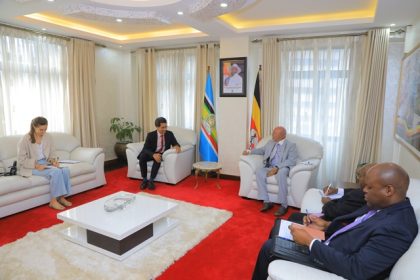 With eyes on oil and gas, France pledges USD 3 billion investment in Uganda
With eyes on oil and gas, France pledges USD 3 billion investment in Uganda
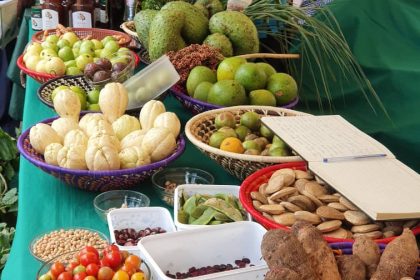 Uganda urged to pitch for organic produce during NAM Summit
Uganda urged to pitch for organic produce during NAM Summit
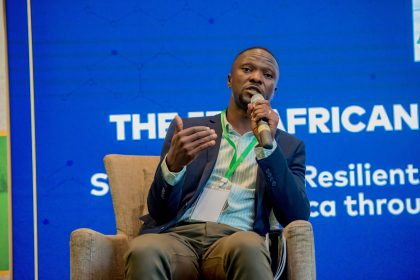 NOGAMU’s Namuwoza tapped to lead bid for increased intra-African trade in organics
NOGAMU’s Namuwoza tapped to lead bid for increased intra-African trade in organics
 From 3 padlocks to a click: Sipi Organic’s long walk to digital banking
From 3 padlocks to a click: Sipi Organic’s long walk to digital banking
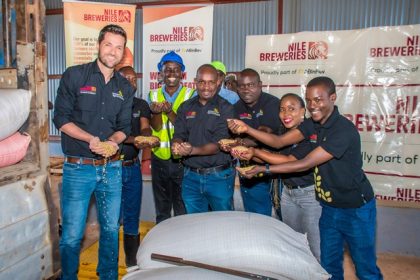 Nile Breweries launches UGX 4Bn barley processing facility in Kween district
Nile Breweries launches UGX 4Bn barley processing facility in Kween district
